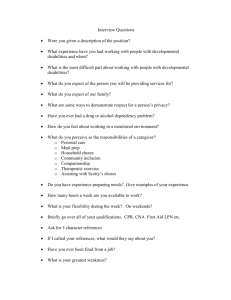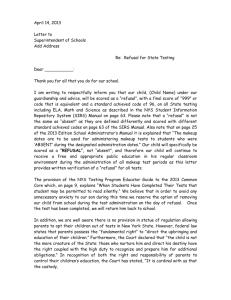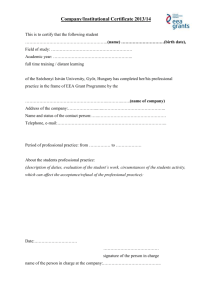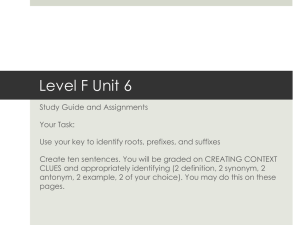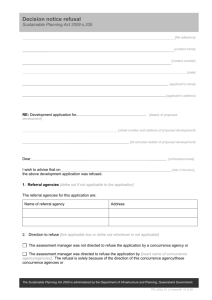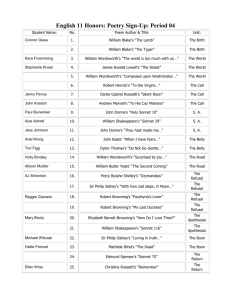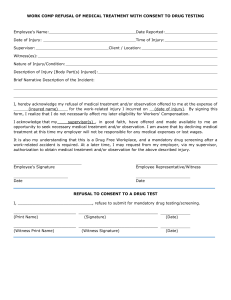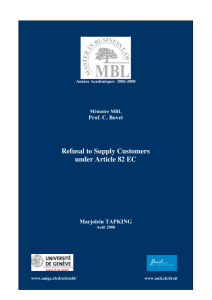Oral Right of First Refusal: Legal Analysis & Case Study
advertisement
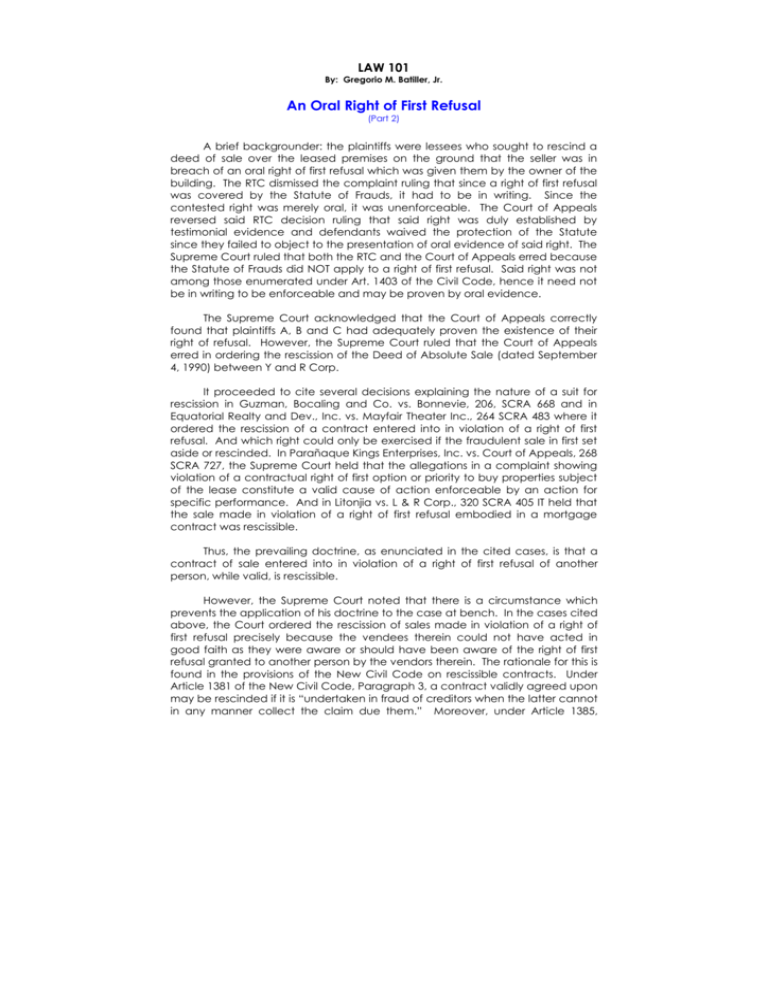
LAW 101 By: Gregorio M. Batiller, Jr. An Oral Right of First Refusal (Part 2) A brief backgrounder: the plaintiffs were lessees who sought to rescind a deed of sale over the leased premises on the ground that the seller was in breach of an oral right of first refusal which was given them by the owner of the building. The RTC dismissed the complaint ruling that since a right of first refusal was covered by the Statute of Frauds, it had to be in writing. Since the contested right was merely oral, it was unenforceable. The Court of Appeals reversed said RTC decision ruling that said right was duly established by testimonial evidence and defendants waived the protection of the Statute since they failed to object to the presentation of oral evidence of said right. The Supreme Court ruled that both the RTC and the Court of Appeals erred because the Statute of Frauds did NOT apply to a right of first refusal. Said right was not among those enumerated under Art. 1403 of the Civil Code, hence it need not be in writing to be enforceable and may be proven by oral evidence. The Supreme Court acknowledged that the Court of Appeals correctly found that plaintiffs A, B and C had adequately proven the existence of their right of refusal. However, the Supreme Court ruled that the Court of Appeals erred in ordering the rescission of the Deed of Absolute Sale (dated September 4, 1990) between Y and R Corp. It proceeded to cite several decisions explaining the nature of a suit for rescission in Guzman, Bocaling and Co. vs. Bonnevie, 206, SCRA 668 and in Equatorial Realty and Dev., Inc. vs. Mayfair Theater Inc., 264 SCRA 483 where it ordered the rescission of a contract entered into in violation of a right of first refusal. And which right could only be exercised if the fraudulent sale in first set aside or rescinded. In Parañaque Kings Enterprises, Inc. vs. Court of Appeals, 268 SCRA 727, the Supreme Court held that the allegations in a complaint showing violation of a contractual right of first option or priority to buy properties subject of the lease constitute a valid cause of action enforceable by an action for specific performance. And in Litonjia vs. L & R Corp., 320 SCRA 405 IT held that the sale made in violation of a right of first refusal embodied in a mortgage contract was rescissible. Thus, the prevailing doctrine, as enunciated in the cited cases, is that a contract of sale entered into in violation of a right of first refusal of another person, while valid, is rescissible. However, the Supreme Court noted that there is a circumstance which prevents the application of his doctrine to the case at bench. In the cases cited above, the Court ordered the rescission of sales made in violation of a right of first refusal precisely because the vendees therein could not have acted in good faith as they were aware or should have been aware of the right of first refusal granted to another person by the vendors therein. The rationale for this is found in the provisions of the New Civil Code on rescissible contracts. Under Article 1381 of the New Civil Code, Paragraph 3, a contract validly agreed upon may be rescinded if it is “undertaken in fraud of creditors when the latter cannot in any manner collect the claim due them.” Moreover, under Article 1385, rescission shall not take place “when the things which are the object of the contract are legally in the possession of third persons who did not act in bad faith. It must be borne in mind that, unlike the cases cited above, the right of first refusal involved in the instant case was an oral one given to respondents by the deceased spouses T and subsequently recognized by their heirs. As such, in order to hold that the buyers were in bad faith, there must be clear and convincing proof that said lawyers were made aware of the said right of first refusal either by the respondents or by the heirs of spouses T. This the plaintiffs, however, failed to do. (Rosencor Development Corp. and Rene Joaquin vs. Paterno Inquing, et. al., G.R. No. 140479, March 8, 2001).
